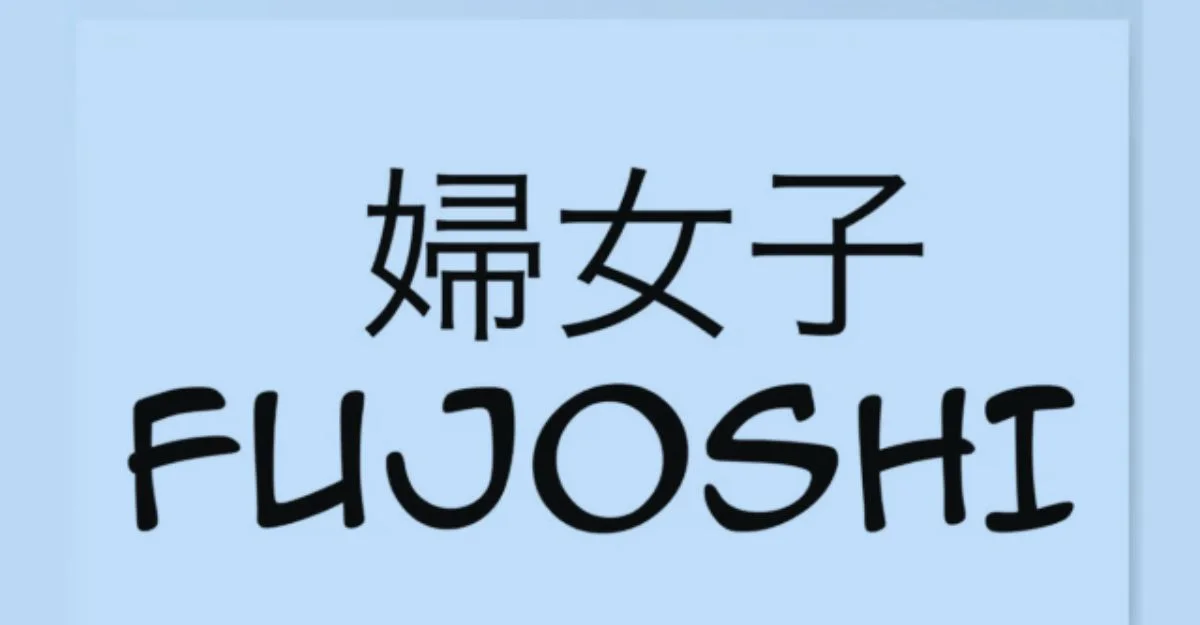The term “fujoshi” (literally meaning “rotten girl”) is used to refer to a woman who enjoys imagining male homosexual relationships and/or homosexual content in various fictional settings, usually related to entertainment for women, such as manga, animation, games, and homoerotic writings. Despite the pervasiveness of the fujoshi meaning, with an ever-increasing number of works created both by and for the fujoshi audience, it has become apparent both inside and outside of this female fandom that existing research is fixed on a superficial understanding of the term itself and its makers as providing a form of entertainment for the female gaze and a possible means to gain power by appropriating male culture. In this paper, we introduce interviews with women fans and show that the term can be understood as a chosen identification with otaku culture that reasserts female difference from the male otaku, who embodies failures and weaknesses considered as uniquely male. It bolsters their cultural significance that narratives of male homosexuality made by and for Fujoshi Meaning characters authenticate this difference and thereby sexually objectify men, soon transforming their female creators into male-lover defenders of the female gaze upon their homosexual creations, as well as appropriations of male metrosexuality for personal and collective concepts of female and otaku self-improvement. It is important to understand and acknowledge this diversity of female desires and ways of desiring in narrative and fictional ways, especially in regard to existing narratives of male homosexuality in mass media.
In the vast world of anime and manga fandom, several niche communities exist with their unique cultures and terminology. One such term that has gained widespread recognition is Fujoshi. If you’ve come across this word and wondered what it means, this article is here to break it down for you. We’ll explore its origins, cultural impact, stereotypes, and how it has evolved over time.
What is the Meaning of Fujoshi?
The term Fujoshi (腐女子) is a Japanese slang word that translates to “rotten girl.” It is commonly used to describe female fans who are particularly enthusiastic about Boys’ Love (BL) or Yaoi—a genre of manga and anime that depicts romantic and sometimes sexual relationships between male characters.
Origins of the Term Fujoshi
The word “Fujoshi” originally had a different meaning. It was a homophone for the Japanese word (婦女子), meaning “respectable woman.” However, within anime and manga fandoms, it was humorously reinterpreted as (腐女子), replacing the characters to mean “rotten girl.” This shift occurred as fans of BL content humorously embraced the term, acknowledging society’s perception of their interests as unconventional or “rotten.”
Who is a Fujoshi? (User Persona)
Let’s create a fictional persona to better understand the characteristics of a typical Fujoshi.
Persona: Akari Tanaka
- Age: 22
- Location: Tokyo, Japan
- Occupation: University Student, Part-time Manga Store Employee
- Hobbies: Reading BL manga, attending anime conventions, writing fanfiction, and discussing favorite pairings online.
- Favorite Anime & Manga: “Given,” “Junjou Romantica,” “Yuri!!! on Ice”
- Online Presence: Active on fan forums, Twitter, and Tumblr, where she shares fanart and theories about her favorite BL characters.
- Mindset: Passionate about storytelling and LGBTQ+ representation in media. She enjoys deep character relationships, angst-filled love stories, and heartwarming BL romances.
The Fujoshi Culture and Community
Fujoshi are a vibrant and dedicated community within the anime and manga fandom. Their culture revolves around creating, consuming, and analyzing Boys’ Love content.
Key Aspects of Fujoshi Culture:
- Shipping: Fujoshi love to “ship” (romantically pair) male characters from various anime, manga, or even real-life entertainment industries.
- Fanfiction & Doujinshi: Many Fujoshi contribute to the fandom by writing BL fanfiction or creating doujinshi (fan-made comics) that depict relationships between male characters.
- Conventions & Events: They frequently attend anime conventions, particularly Comiket, where they buy and sell BL-related content.
- Online Forums & Social Media: Platforms like Twitter, Pixiv, and Tumblr serve as hubs for Fujoshi to discuss pairings, theories, and new releases in the BL world.
Common Stereotypes and Misconceptions About Fujoshi
Despite their dedication, Fujoshi Meaning often face stereotypes and misconceptions. Some of the most common ones include:
- “Fujoshi are obsessed with unrealistic relationships.” While some Fujoshi enjoy exaggerated romantic scenarios, many appreciate well-written, complex relationships that explore emotions and character growth.
- “They fetishize gay relationships.” While it’s true that some BL content is idealized, many Fujoshi also advocate for genuine LGBTQ+ representation in media.
- “Only women can be Fujoshi.” Though the term refers to female fans, male fans of BL exist as well, known as Fudanshi (腐男子).
The Evolution of Fujoshi Culture
Over the years, the term Fujoshi has evolved. What was once considered a niche subculture has now gained mainstream acceptance. BL manga and anime have increased in popularity, with titles like Given, Banana Fish, and Yuri!!! on Ice receiving international acclaim.
Additionally, Fujoshi culture has influenced:
- Publishing Industry: More BL content is being officially translated for international audiences.
- LGBTQ+ Representation: While BL remains a fantasy-driven genre, it has helped create discussions around LGBTQ+ themes in Japan and beyond.
- Merchandise & Marketing: The growing demand has led to more BL-related merchandise, collaborations, and even live-action adaptations.
Conclusion
The term Fujoshi represents more than just an interest in BL manga and anime—it is a passionate and creative community that has made a lasting impact on fandom culture. Over time, it has grown beyond its original “rotten” connotation to symbolize dedication, artistic expression, and a love for deep storytelling. Whether you’re a Fujoshi Meaning yourself or just curious about the term, it’s clear that this fandom is here to stay, continuously shaping and evolving the anime and manga landscape.(Fujoshi Meaning)
FAQs
1. Can men be Fujoshi?
No, men who enjoy BL content are typically called Fudanshi instead. However, the term Fujoshi is sometimes used loosely to describe any passionate BL fan, regardless of gender.
2. Is being a Fujoshi bad?
Not at all! Being a Fujoshi simply means having a strong passion for BL content. Like any fandom, there are different perspectives, but the community itself is supportive and creative. (Fujoshi Meaning)
3. Are all Fujoshi interested in LGBTQ+ issues?
Not necessarily. While some Fujoshi support LGBTQ+ rights and representation, others simply enjoy the romantic storytelling aspect of BL without engaging in broader discussions about LGBTQ+ topics.
4. What is the difference between Yaoi and BL?
“Yaoi” typically refers to BL content with more explicit sexual themes, while “Boys’ Love (BL)” is a broader genre that includes both romantic and platonic relationships between male characters.
5. Where can I find BL manga and anime?
BL manga and anime can be found on platforms like Crunchyroll, MyAnimeList, MangaDex, and official manga publishers like SuBLime and Yen Press.

